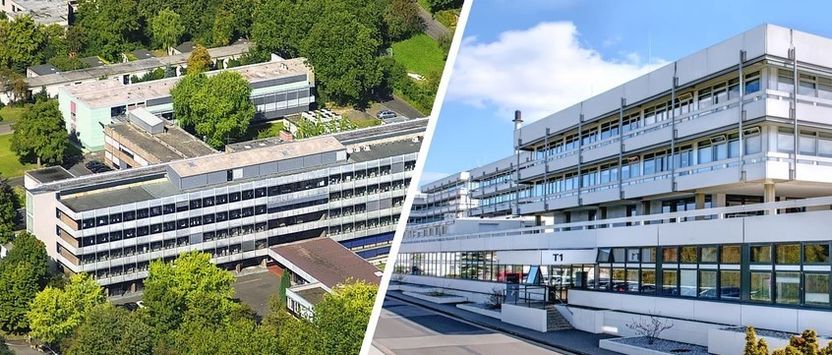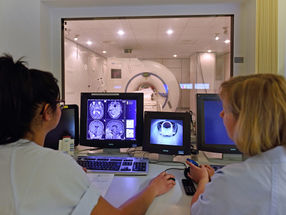New Max Planck Institute in Göttingen Combines Natural and Medical Sciences
Largest institute in the Max Planck Society
Advertisement
The Göttingen-based Max Planck Institutes (MPI) for Biophysical chemistry and Experimental Medicine have merged as of January 1, 2022. This will establish a new MPI, the Max Planck Institute for Multidisciplinary Sciences. It will cover a much broader spectrum of research, thus promoting disciplinary diversity and collaboration. With a total of 16 departments and more than 25 research groups, the MPI for Multidisciplinary Sciences will be the largest institute in the Max Planck Society.

The City Campus (left) and the Fassberg Campus of the new Max Planck Institute for Multidisciplinary Sciences.
© Johannes Pauly/ Max-Planck-Institut für Multidisziplinäre Naturwissenschaften
"The spectrum of subjects at our institute now ranges from physics and chemistry via structural and cell biology to neuroscience and biomedical research. With this wide range, the institute can position itself better than before in the international research landscape. We can thus link basic research in the natural sciences even more effectively with medical research approaches," says Marina Rodnina. As Managing Director of the MPI for Biophysical Chemistry, she and her managing colleague Nils Brose at the MPI of Experimental Medicine have taken the lead in implementing the merger in recent months. "The expansion of research topics, from basic natural science to translational preclinical research, will provide us with the scientific flexibility needed to address the most ardent questions in natural science of the 21st century," Brose adds.
As Max Planck Director Stefan Hell emphasizes, the new Max Planck Institute in Göttingen should become an even more attractive destination for outstanding scientists. "The broader range of subjects will allow us to recruit yet undiscovered talents at all career stages and from a wide variety of disciplines. Above all, we want to attract those young researchers whose approaches promise to fundamentally change the direction of science. Their enthusiasm and fresh, critical thinking are key drivers of progress. This is one of the main reasons why we are making a concerted and strong case for the merger. There are very few places in Germany where such a multidisciplinary MPI can be established. Göttingen is without a doubt such a location,” the Nobel Prize winner states.
Max Planck Director Patrick Cramer will serve as Managing Director of the new MPI for the next two years. "I am very much looking forward to helping shape our new institute. It will be exciting to see how the people at our two locations can work together and learn from each other. We have great plans and intend to establish several new research departments over the next few years," he says.


























































